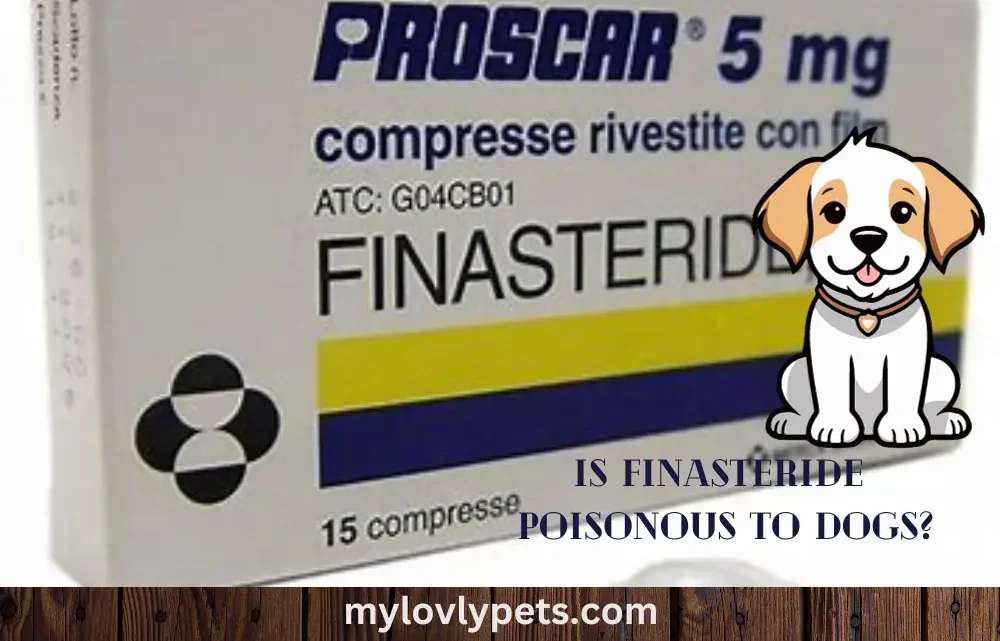
Is Finasteride Poisonous To Dogs?
Is Finasteride Poisonous to Dogs? As responsible pet owners, it’s crucial to be aware of the potential dangers that certain medications can pose to our furry friends, like Finasteride.
Finasteride, a medication widely used in humans, has demonstrated promising outcomes in treating enlarged prostate in dogs and adrenal disease in ferrets. Although not officially approved for use in animals, the FDA permits veterinarians to prescribe it in specific situations. However, it’s crucial to remember that it may adversely impact a dog’s reproductive system, especially in young, sexually developing, pregnant, or nursing females or those with severe liver illness. It’s essential to avoid accidental ingestion of harmful substances, as it can harm one’s health.
Understanding the Risks of Finasteride to Dogs:
Finasteride medication can have adverse effects on the reproductive systems of dogs, so its use should be administered with care and consideration, especially among young, sexually developing, pregnant or nursing females and females with significant liver disease.
Furthermore, it should be given with caution if any accidental ingestion occurs as this could pose potential threats to their health and wellbeing. Recognizing these potential risks is integral in protecting both you and your pet’s safety.
What is Finasteride?
Finasteride, or Proscar and Propecia, is a medication for dogs with enlarged prostate glands that helps treat infertility. It can also help with symptoms like frequent urination, trouble with bowel movements, and blood in the urine.
Finasteride is an excellent option for reducing prostate size in breeding dogs without impacting testosterone production or semen quality. It is also used to treat adrenal disease in ferrets. In veterinary medicine, off-label use is expected. However, following your veterinarian’s instructions and cautions carefully is crucial.
What are The Side Effects of Finasteride?
Although there is limited research on Finasteride’s effects in animals, dogs generally tolerate it well. Common side effects of this medication typically include vomiting, diarrhea, and decreased appetite. Fortunately, these side effects are usually not severe or cause for concern. If these symptoms worsen or persist, it’s crucial to contact your veterinarian for further guidance.
Recognizing and Responding to Finasteride Poisoning in Pets:
If your pet ingests excessive finasteride medication, it’s crucial to recognize the signs of poisoning promptly to ensure a swift response to any adverse effects. Although no specific side effects have been reported in dogs, it is still essential to consider the possibility of an adverse reaction.
Keep an eye out for any signs of discomfort in your furry friend, such as acting unwell or experiencing vomiting after they’ve taken their medication. Typically, the effects of Finasteride should subside within 24 hours. However, it’s important to note that this timeline may differ for pets with liver or kidney disease. Talk to your vet immediately if you think there may have been an overdose or adverse reaction. You can also contact an animal poison control center if you suspect an overdose.
Immediate Steps and Veterinary Care After Finasteride Ingestion:
If your dog unwittingly consumes finasteride, its consequences could have serious repercussions for his/her health. As instructed by your vet, do not induce vomiting as this may do more damage than good.
Instead, watch for unusual behaviors or symptoms from your pet such as vomiting, appearing unwell, or showing signs of discomfort, then promptly contact either your veterinarian or emergency pet hospital to provide as much information as possible about size, quantity ingested medication taken and time of ingestion so professionals can make accurate assessments and decide the best course of action accordingly.
Long-Term Implications of Finasteride Poisoning in Dogs:
There have been no specific long-term effects associated with finasteride poisoning in dogs; however, due to its influence on hormonal balance and reproduction, prolonged or significant exposure could potentially cause hormonal disruption or reproductive problems in the long term.
Pets predisposed to liver or kidney disease could experience more lasting ramifications from prolonged medication effects; regular veterinary check-ups after accidental ingestion will help track your pet’s wellbeing and identify any delayed complications or effects that could potentially arise later down the road.
Preventing Accidental Finasteride Ingestion: Dog Owner Safety Tips:

Is Finasteride poisonous to dogs? Regarding the health and well-being of our furry friends, it’s only natural to be concerned about potential dangers lurking in our homes.
To keep your pet safe:
- Take precautions to prevent them from accidentally ingesting Finasteride.
- Keep your medication in childproof containers and out of your dog’s reach.
- Keep pills out of your dog’s reach and avoid taking medicines in front of them to prevent curiosity.
Finasteride can be harmful if mishandled by humans. Store the medicine in its original prescription bottle or an approved dosage reminder container. Keep it at room temperature and out of the light. Wearing gloves is essential when handling Finasteride, especially if you’re pregnant or trying to conceive. Crushing the pills could release dangerous powder. Following these precautions may assure your and your pet’s safety when using Finasteride.
Read:


